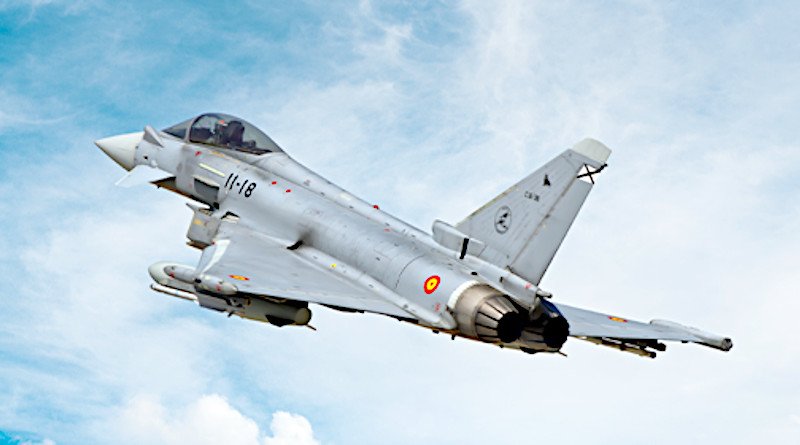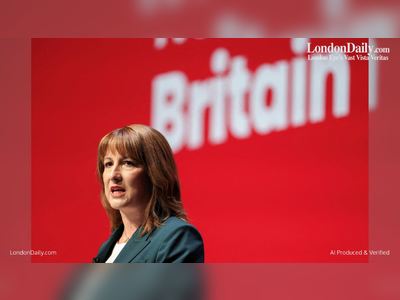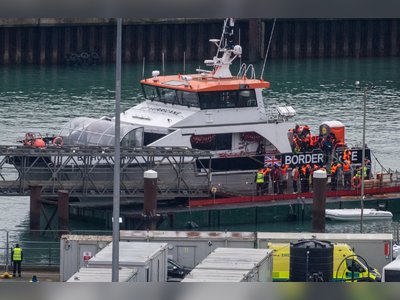
UK and Turkey Sign £8 Billion Eurofighter Typhoon Deal to Strengthen NATO and Defence Industries
Agreement for 20 jets secures thousands of UK jobs and marks a new chapter in UK-Turkiye strategic partnership
During his official visit to Ankara, UK Prime Minister Keir Starmer and Turkish President Recep Tayyip Erdogan signed an agreement under which the UK will supply Turkey with twenty Eurofighter Typhoon multirole combat aircraft in a deal valued at up to eight billion pounds (approximately ten point seven billion dollars).
The contract was publicly heralded as “a win for British workers, a win for our defence industry and a win for NATO security.”
The agreement, the first new UK Typhoon order since 2017, officially brings Turkey aboard the Typhoon programme, making it the tenth operator globally.
The UK government says the deal will safeguard about twenty thousand jobs across the UK defence supply chain, including major facilities in Lancashire, Bristol, Edinburgh and Samlesbury.
Budget filings by the primary partner BAE Systems indicate expected revenues of approximately four point six billion pounds from the contract.
At a time of heightened global strategic tension, the transaction was framed as bolstering the southeastern flank of North Atlantic Treaty Organization (NATO).
Turkey’s location—at the nexus of Europe, the Middle East and the Black Sea—renders its air-capability upgrade particularly significant.
Starmer said that “at either end of Europe, the UK and Turkey are vital partners, and this deal will enable our armed forces to work even more closely together as we deter threats and protect our national interests.”
For Ankara, the acquisition forms part of an accelerated air-force modernisation push.
Having been excluded from the US-led F‑35 Lightning II programme, Turkey sought an advanced Western combat platform.
The Typhoon deal complements Ankara’s indigenous fighter development initiative (the TAI Kaan project) and interim procurement of jets from regional states.
Turkish Defence Minister Yasar Guler described the agreement as “a new symbol of the strategic relationship between us as two close allies.”
While widely celebrated in London and Ankara, the deal comes amid scrutiny over Turkey’s domestic governance and human-rights record.
UK officials say human-rights concerns were raised privately during the visit and that the agreement should not undermine the UK’s broader values commitments.
Analysts emphasise the trade-off between economic imperatives—such as defence-industrial employment—and strategic alignment in a turbulent security environment.
The first deliveries to Turkey are expected around 2030.
The agreement also revives a broader bilateral agenda: both countries agreed to relaunch the Tatli Dil Forum, which promotes cooperation across trade, education and culture.
With the next NATO summit scheduled for 2026 in Ankara, the timing of the deal underscores Britain’s intent to deepen its global outreach post-Brexit and Turkey’s continued role as a key NATO partner.
In the words of Starmer, the pact “ensures British Typhoons will form a vital part of the Turkish Air Force for many years to come.”
The contract was publicly heralded as “a win for British workers, a win for our defence industry and a win for NATO security.”
The agreement, the first new UK Typhoon order since 2017, officially brings Turkey aboard the Typhoon programme, making it the tenth operator globally.
The UK government says the deal will safeguard about twenty thousand jobs across the UK defence supply chain, including major facilities in Lancashire, Bristol, Edinburgh and Samlesbury.
Budget filings by the primary partner BAE Systems indicate expected revenues of approximately four point six billion pounds from the contract.
At a time of heightened global strategic tension, the transaction was framed as bolstering the southeastern flank of North Atlantic Treaty Organization (NATO).
Turkey’s location—at the nexus of Europe, the Middle East and the Black Sea—renders its air-capability upgrade particularly significant.
Starmer said that “at either end of Europe, the UK and Turkey are vital partners, and this deal will enable our armed forces to work even more closely together as we deter threats and protect our national interests.”
For Ankara, the acquisition forms part of an accelerated air-force modernisation push.
Having been excluded from the US-led F‑35 Lightning II programme, Turkey sought an advanced Western combat platform.
The Typhoon deal complements Ankara’s indigenous fighter development initiative (the TAI Kaan project) and interim procurement of jets from regional states.
Turkish Defence Minister Yasar Guler described the agreement as “a new symbol of the strategic relationship between us as two close allies.”
While widely celebrated in London and Ankara, the deal comes amid scrutiny over Turkey’s domestic governance and human-rights record.
UK officials say human-rights concerns were raised privately during the visit and that the agreement should not undermine the UK’s broader values commitments.
Analysts emphasise the trade-off between economic imperatives—such as defence-industrial employment—and strategic alignment in a turbulent security environment.
The first deliveries to Turkey are expected around 2030.
The agreement also revives a broader bilateral agenda: both countries agreed to relaunch the Tatli Dil Forum, which promotes cooperation across trade, education and culture.
With the next NATO summit scheduled for 2026 in Ankara, the timing of the deal underscores Britain’s intent to deepen its global outreach post-Brexit and Turkey’s continued role as a key NATO partner.
In the words of Starmer, the pact “ensures British Typhoons will form a vital part of the Turkish Air Force for many years to come.”










